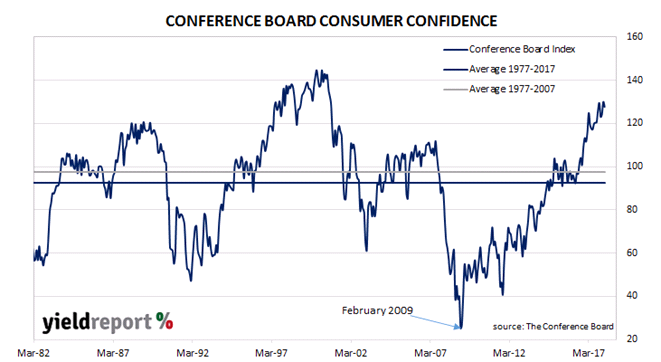Consumer confidence surveys are important private sector surveys even though economists view them as lagging indicators. Their importance lies in the confirmation of spending patterns. As consumption in developed countries may amount to 60%-70% of GDP, knowing how it is behaving is important for forecasts of GDP growth rates, which in turn flow into credit growth and inflation rates.
The Conference Board index is one of two U.S. consumer sentiment indices, the other being the University of Michigan’s Consumer Sentiment Index. The Conference Board’s index is based on perceptions of current business and employment conditions, as well as expectations of business conditions, employment and income six months into the future.
The March reading of the Conference Board’s Consumer Confidence Index came in at 127.7, down from February’s revised reading of 130.0. The index was the result of a survey which ended on 15 March 2018 and it indicated U.S. households are still very optimistic on average. Lynn Franco, Director of Economic Indicators at The Conference Board said, “Consumer confidence declined moderately in March after reaching an 18-year high in February.” The primary driver was a lower assessment of current conditions “with business conditions the primary reason for the moderation.”


